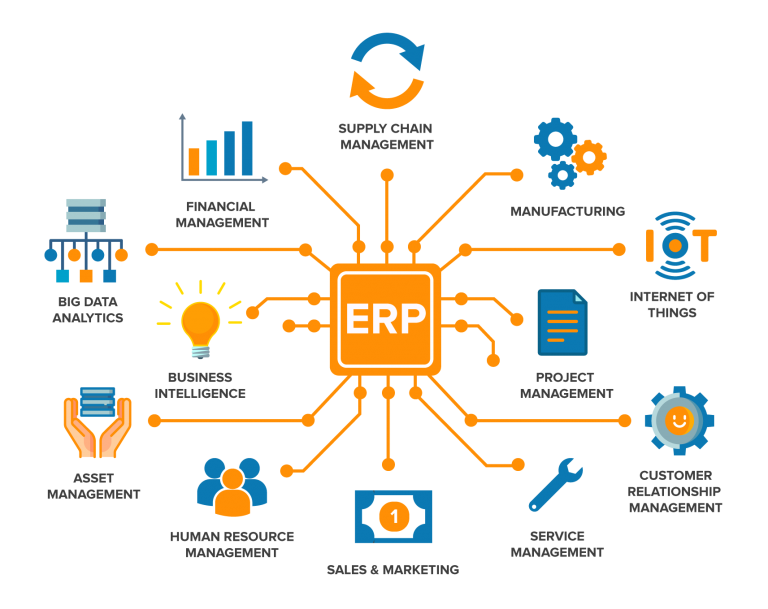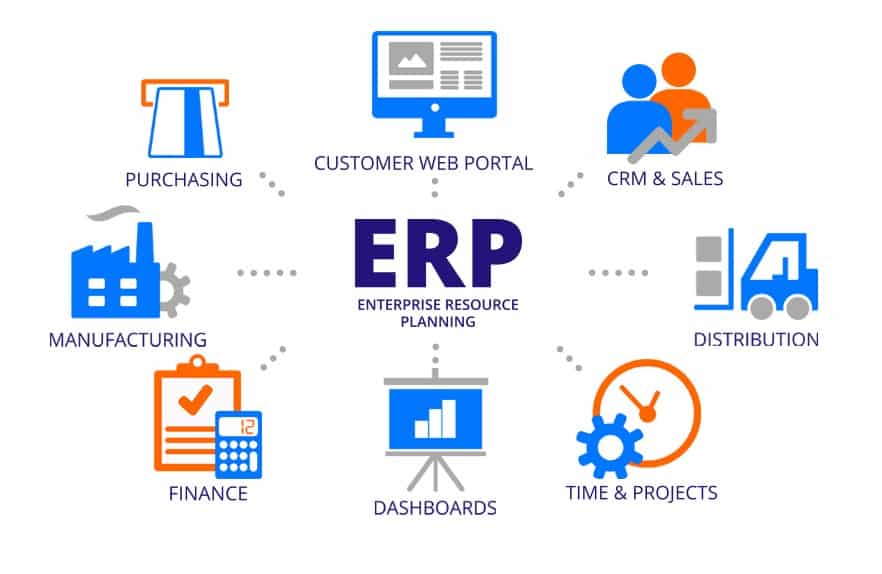ERP (Enterprise Resource Planning) solutions are comprehensive software systems designed to integrate and manage various business processes and functions within an organization. These solutions provide a centralized platform that enables efficient data sharing and real-time visibility across departments, streamlining operations and improving decision-making. ERP solutions typically consist of a suite of modules that can be customized to meet the specific needs of different industries and businesses.
Finance and Accounting
This module manages financial transactions, general ledger, accounts payable and receivable, budgeting, and financial reporting.
Human Resources (HR)
The HR module handles employee information, payroll processing, benefits administration, attendance, and performance management.
Inventory Management
It tracks inventory levels, stock movements, and product availability to optimize inventory control.
Sales and Customer Relationship Management (CRM): This module helps manage customer data, sales leads, orders, and customer interactions, enabling better customer relationship management.
Procurement and Supply Chain Management: This module manages vendor information, purchase orders, and supplier performance to streamline procurement processes.
Manufacturing and Production Planning: For manufacturing businesses, this module handles production planning, shop floor control, bill of materials, and work order management.
Project Management: The project management module assists in planning, tracking, and managing projects, allocating resources, and monitoring progress.
Warehouse Management: For businesses with warehouses, this module manages stock movements, order picking, and warehouse optimization.
Business Intelligence and Analytics: ERP solutions often include data analytics and reporting tools to provide insights into key performance indicators and support data-driven decision-making.
Quality Management: Some ERP solutions offer modules for quality control, helping businesses maintain product and service quality standards.


Benefits of ERP Solutions
Streamlined Processes: ERP integrates various business functions, reducing manual data entry and improving workflow efficiency.
Improved Data Accuracy: Centralized data management reduces data duplication and ensures consistent and accurate information.
Enhanced Collaboration: ERP fosters collaboration between different departments, enabling better communication and coordination.
Real-time Visibility: ERP provides real-time data, giving decision-makers up-to-date insights for informed choices.
Increased Productivity: Automation and streamlined processes lead to increased productivity and reduced operational costs.
Better Customer Service: CRM functionality helps businesses improve customer service and retention.
Regulatory Compliance: ERP systems assist in meeting regulatory requirements and data security standards.
Scalability: ERP solutions can be scaled to accommodate business growth and changing needs.
When implementing an ERP solution, it’s essential to choose a system that aligns with the organization’s industry, size, and specific requirements. Proper planning, user training, and change management are crucial for successful ERP adoption and maximizing the benefits of the system.
UX (User Experience) design and UI (User Interface) design are two critical aspects of creating effective and user-friendly digital products, such as websites, mobile apps, and software applications. While they are related, UX and UI design serve different purposes and focus on different elements of the user’s interaction with the product.

